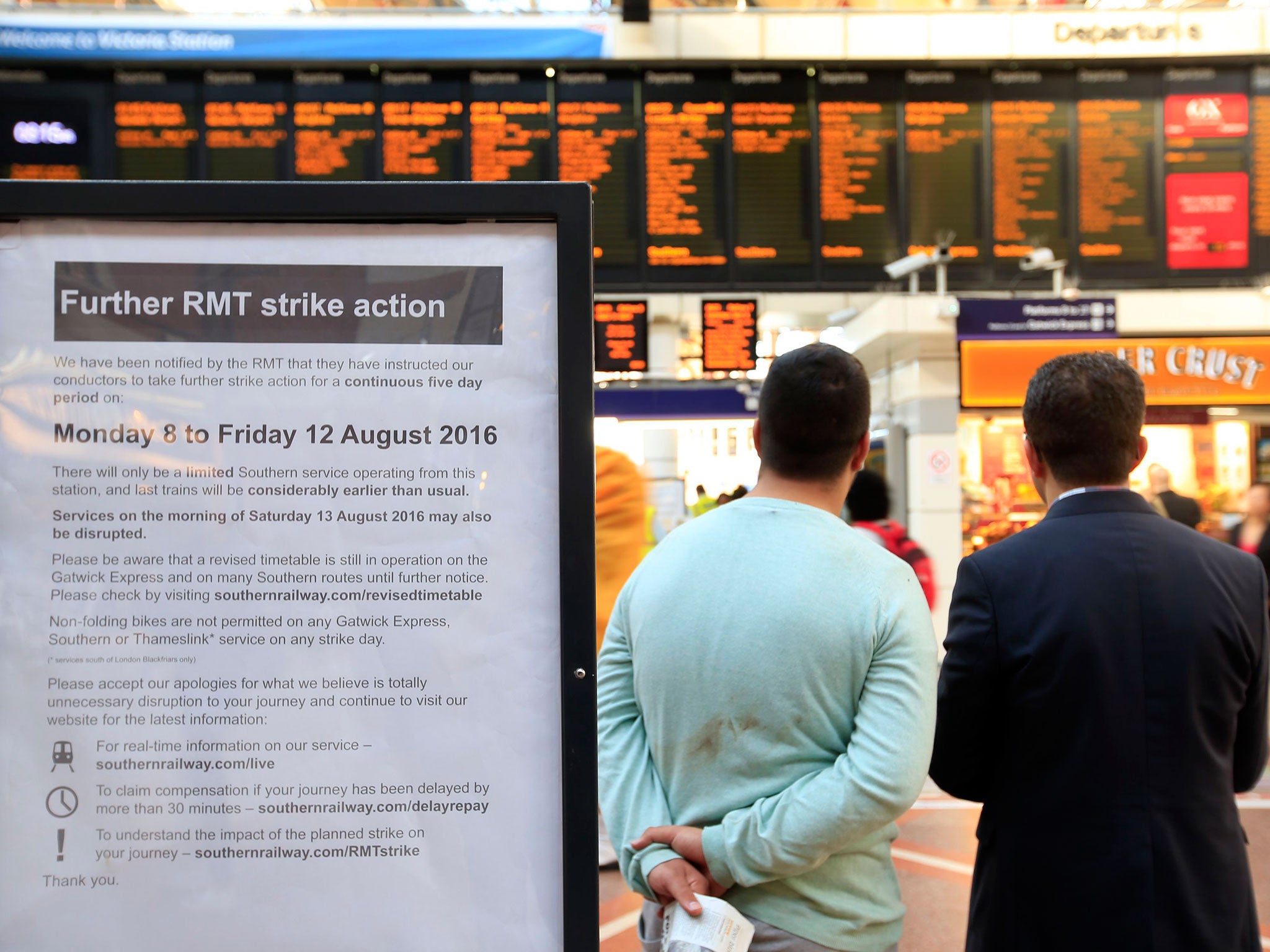The number of workers on strike across multiple sectors is climbing – and Theresa May is strangely silent
The Prime Minister’s spokesperson talks of unions showing “contempt” for ordinary people who are simply trying to go about their daily business; yet if the Government fails to tackle the stagnant economy – and especially the problems associated with flat wage growth – it will not be long before the hard-working public conclude that they are being held in contempt not by fellow workers but by ministers

For users of Southern Rail services, the latest strike by guards is only the latest in a long sequence to have dominated much of the last year. The crux for affected commuters is that, yet again, they will be forced to make alternative arrangements in order to get to or from the office. Tales abound of passengers who have had to find new jobs because their attendance at work had, like the trains they rely on, become unreliable.
However, this week’s industrial action by rail workers takes on additional significance, coinciding as it does with a separate strike by staff at Crown post offices and the prospect of a walkout by British Airways cabin crew over Christmas. With workers at Weetabix having voted to take industrial action in the New Year too, it is little wonder that comparisons are being made with the Winter of Discontent in 1978-79 – although in truth there is little similarly when it comes to scale.
Nevertheless, the underlying disgruntlement which exists now is not entirely dissimilar from that which prevailed in the late 1970s, when the Government faced a groundswell of anger over wages out of step with rising inflation.
Transport Minister Chris Grayling indicated last week that he would not “rule anything out” in terms of considering more restrictive laws against strike action. Yet it is only a matter of months since the Trade Union Act was passed, which itself was designed to weed out unreasonable union stoppages. With a small majority in the Commons and a degree of hostility likely in the House of Lords, it is not probable that the Government will seek to legislate again. Moreover, while sympathy with striking train crew may increasingly be at a premium, many commuters take as dim a view of Southern’s management as they do of the RMT or Aslef. And when it comes to other sectors, ministers would be brave to assume that the public is naturally against workers who seek to protect their pay and conditions by recourse to strike action.
Indeed, in a battle of political wills, it is difficult to know which side has most to gain by bending at the knee. The Prime Minister’s spokesperson talks of unions showing “contempt” for ordinary people who are simply trying to go about their daily business; yet if the Government fails to tackle the stagnant economy – and especially the problems associated with flat wage growth – it will perhaps not be long before the hard-working public conclude that they are being held in contempt not by fellow workers but by ministers.
Ultimately, prolonged strike action creates few winners. As the Southern dispute has shown, two entrenched sides can happily continue their quarrel for months without a resolution. And it is in this respect that the Government should do more, by doing all it can – either publicly or behind the scenes – to encourage a more constructive dialogue between employers and unions. David Cameron and George Osborne liked to say of their austerity measures that “we’re all in it together”. As a phrase it frequently rang hollow – but it is a principle which Theresa May might usefully dust down as she seeks to work out how to ensure that the Winter of Discontent remains a Ghost of Christmas Past.

Join our commenting forum
Join thought-provoking conversations, follow other Independent readers and see their replies